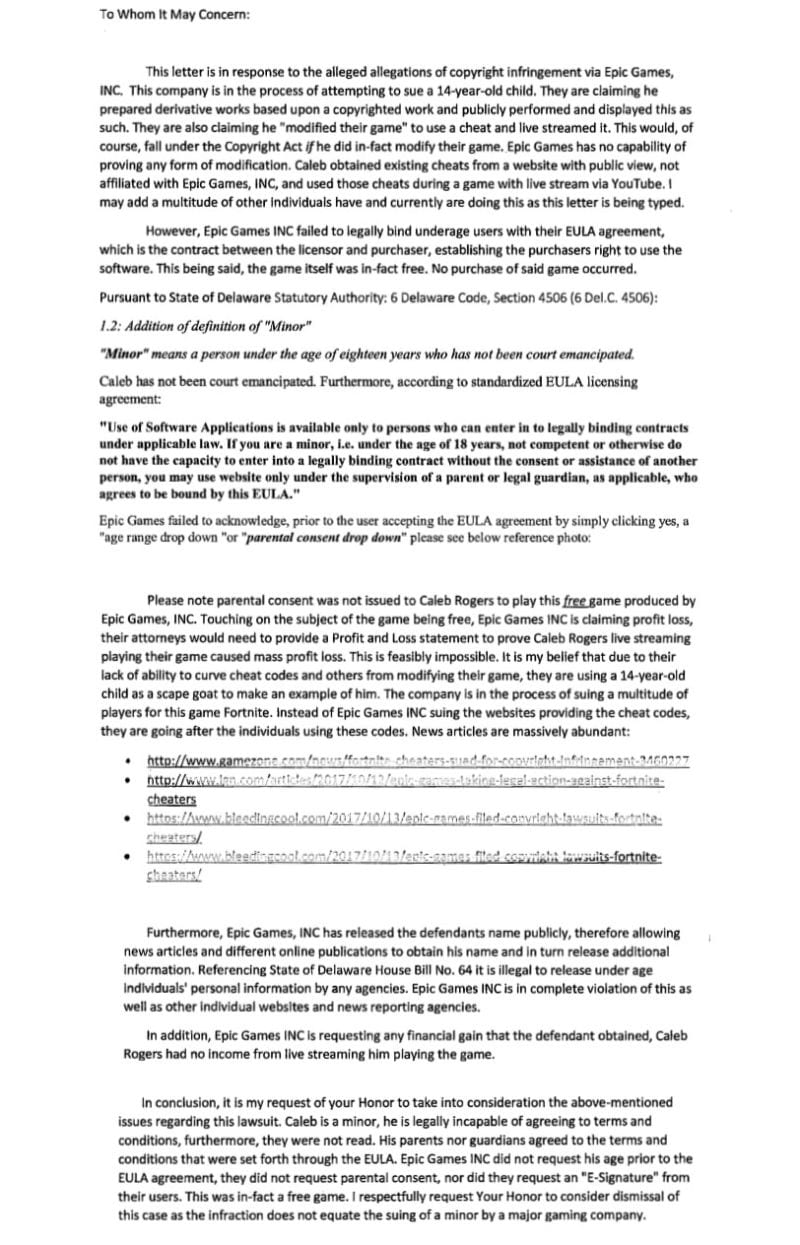According to Epic, the players modified the game’s code by using the site ‘Addicted Cheats’ to obtain “aimbots” that would give them a competitive edge in the game, which involves building forts, scavenging gear and fighting waves of monsters. Using the cheat codes which aren’t free (usually need to pay between $5-$15 for the service), players could then kill weaker characters for fun, especially those “streamers” who create video recordings of their own games. Epic is claiming that they allegedly acted as support personnel for the site and using aimbot software “They also helped to stream snipe popular Twitch broadcasters. The suit said some of the players publicly boasted about cheating and encouraged others to do the same, a practice that cost Epic lost sales and profits. “Nobody likes a cheater,” the suit said. “And nobody likes playing with cheaters. These axioms are particularly true in this case.” “This particular lawsuit arose as a result of the defendant filing a DMCA counterclaim to a takedown notice on a YouTube video that exposed and promoted Fortnite Battle Royale cheats and exploits,” Epic says in a statement given to Kotaku. “Under these circumstances, the law requires that we file suit or drop the claim. “Epic is not okay with ongoing cheating or copyright infringement from anyone at any age. As stated previously, we take cheating seriously, and we’ll pursue all available options to make sure our games are fun, fair, and competitive for players.” However, the 14-year old’s mother has decided to fight the case on his son’s behalf and has claimed that Epic Games is using them as scapegoats. Not happy with the way Epic Games have handled the case, the mother in a letter to the court has attacked the former on the following grounds:
She says that Fortnite’s EULA requires permission from a parent or legal guardian for minors, which she did not give. She states, “Please note parental consent was not issued to [my son] to play this free game produced by Epic Games, INC[.]” Her son did not help create the cheat software, but simply downloaded it as a user, and that Epic “has no capability of proving any form of modification”. Since Fortnite Battle Royale is a free-to-play video game, and Epic would need to provide a statement certifying that Rogers’ cheating directly caused them a “mass profit loss” due to her son’s actions. She claims that Epic is targeting individual players rather than the websites that are selling or providing the software necessary to cheat in an online game and “using a 14 year-old child as a scapegoat”. Lastly, the mother says that by releasing her minor son’s name to the public, Epic has violated Delaware laws related to the release of information on minors.
You can read the defendant’s mother’s letter below.
Source: Kotaku
